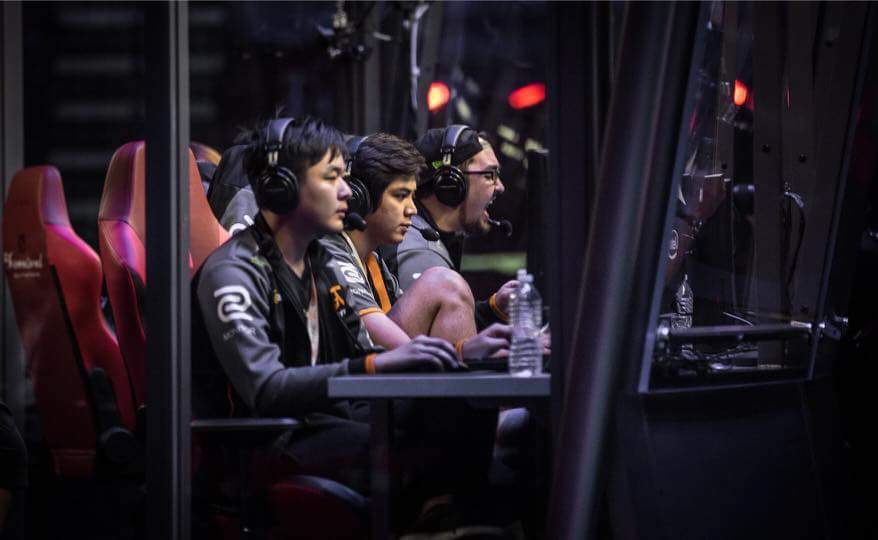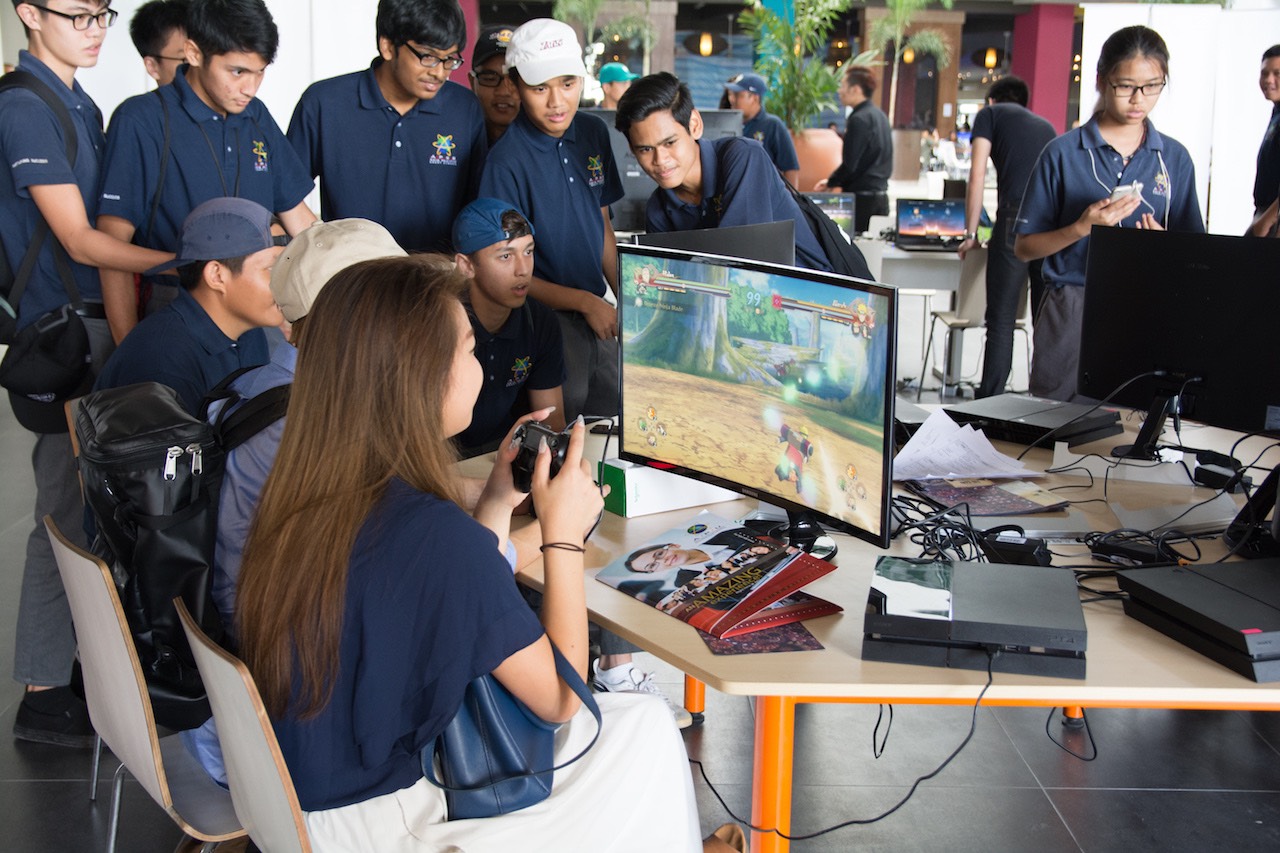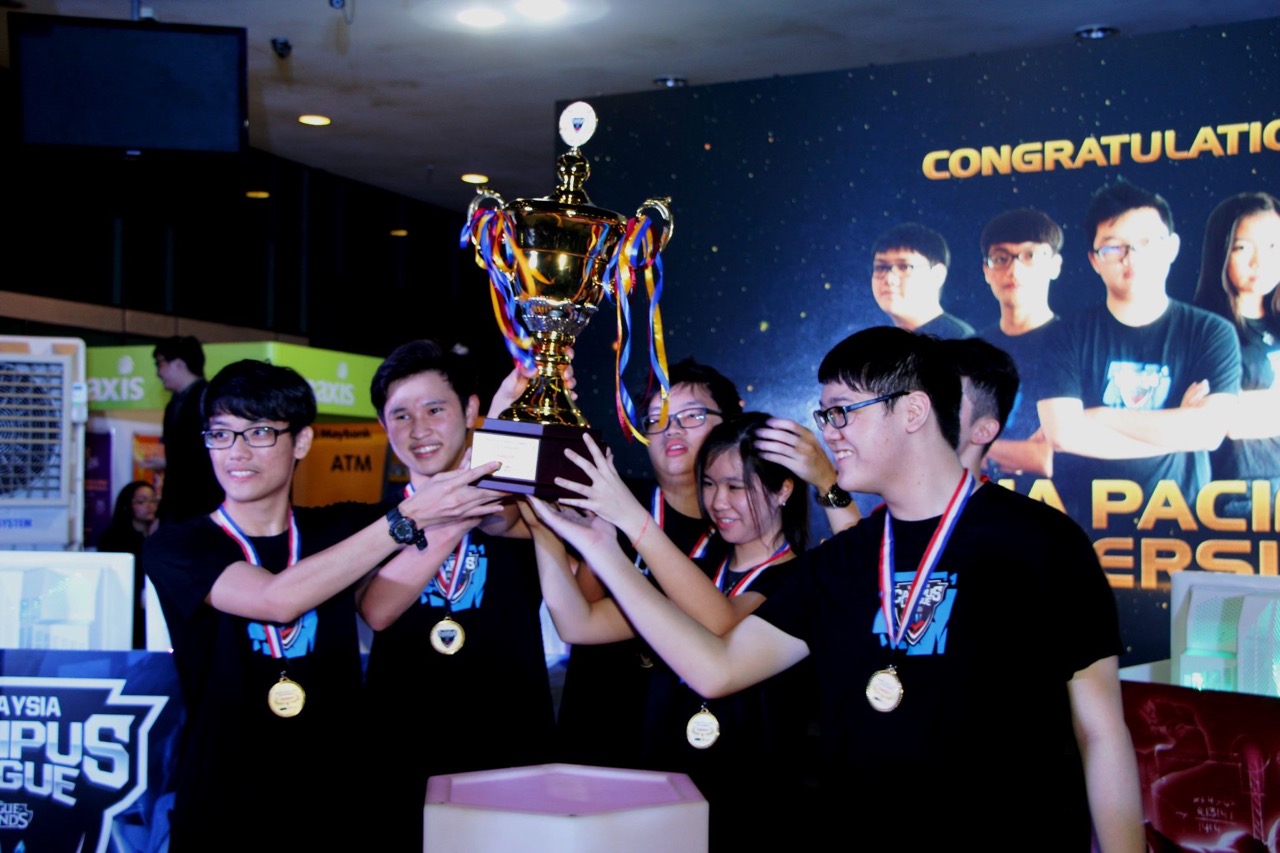At an indoor stadium in Seattle, United States, last August, thousands gathered on the dimly-lit stands, focusing intently on the gigantic digital screens hanging over the center-stage.
Under the giant screens was not a game of basketball or ice hockey, which the KeyArena would normally host, but two isolation rooms.
In one room were four Malaysians and a Filipino glued to their computers, controlling their mix of wizards, warriors and beasts with flicks of the mouse and furious keyboard clacks.
The quintet swooped in for an ambush, locking their opponents with a spell that stops time. But alas, their opponents were ready and showered them with a barrage of meteors and magic spells.
Amidst the chaos, the Malaysian team scatters and their American opponents steamrolled into their defenseless base to destroy it and claim victory.

The crescendo from the crowd reaches a furious climax, marking the end of the road for Team Fnatic’s dramatic run at The International 2016, the world’s most prestigious Dota 2 tournament.

Although the loss meant that they were placed fourth in the tournament, the players walked away with a whopping US$1.45 million (RM5.81 million).
They would have received US$9.14 million (RM40.56 million), had they won first place, or US$3.43 million (RM15.22 million) for second place and US$2.18 million (RM9.67 million) for third place.
Nonetheless, the five still walked away with an equal portion of US$174,471.80 (RM774,000) each, after US tax and management deductions.

Dota 2 The International Flickr Pix
From pastime to career
Since 2011, The International (TI) has emerged as the most lucrative annual e-sports tournament, beating even prestigious sporting events such as the recent US PGA Tour or Tour de France.
The total prize pool has consistently increased throughout the years and in The International 2016, reached US$20.77 million (RM92.17 million).
Some 150 million viewers across the world tuned into The International 2016 and broadcasters, including Malaysian satellite television provider Astro, have begun offering dedicated channels to air such tournaments.
To fans, The International is to Dota 2 what the World Cup is to football. What was once perceived as mere time-waster has transformed into a professional
As the name suggests, professionally e-sports require a high level of dedication and rigorous training to be in peak competitive shape for a shot at gold and glory.
One such player is 22-year-old Adam Erwann Shah, who goes by the handle “343”. He was part of Team Fnatic, which secured the highly respectable fourth place at The International 2016.

To the uninitiated, this psychology student at Segi University is just like any other student.
But on the Dota 2 professional gaming scene, Adam is a giant of sorts and is listed as the fifth highest-earning player in Malaysia by tracking service esportsearnings.com.
Adam has amassed a total of US$357,158.63 (RM1.42 million) from 18 Dota 2 tournaments since his professional career began in 2015.
His fellow Malaysians on Team Fnatic, namely Mushi, Ohaiyo and MidOne have raked in US$773,450.02 (RM3.43 million), US$739,183.13 (RM3.28 million) and US$412,748.80 (RM1.83 million) respectively from their Dota 2 career.
Their Filipino teammate DJ is the highest earning player in the Philippines, with US$474,121.51 (RM2.1 million) to date.
Top five Malaysian Gamers
And their prize money in US Dollars
Chai Yee Fung a.k.a Mushi
Wong Hock Chuan
Khoo Chong Xin a.k.a Ohaiyo
Yeik Nai Zheng a.k. Midone
Adam Erwann Shah a.k.a 343
Gruelling training
Adam was introduced to Defence of the Ancients – the predecessor to Dota 2 – when he was in primary five. What started as a casual past time eventually became a career.
But after The International 2016 and despite his passion for the game, fatigue eventually set in.
“After I played TI, I come back and I just don’t want to play Dota. I just want to be away from it.
“I want to do stuff I haven’t done in a while, I want to see my friends, I want to go to the mamak. Maybe after a week, then I will play Dota. I still enjoy the game.”
He recalled the regimented training – better known as boot camp – he had to undergo in the lead up to The International 2016.
Along with his teammates, they had to live in a dedicated team house, away from their families, to train full time. The team’s management even supplied a cook.
“In the morning, we come down, we eat and talk, watch replays of our games or play the game. It’s just Dota. We have no time for Facebook or anything else. Dota is the only thing on your computer.
“Usually, by 1pm or 2pm, we will play like two best of three games a day. In between, we usually just have 90 minutes of rest, then we either have to go for a swim or spend time in the gym,” said Adam.
At night, Adam and his teammates will have to play more games as part of their training. This goes on for seven days a week during boot camp. To Adam and his teammates, this is essentially “full-time work”.
Adam concedes that the training regime is gruelling. The trade-off is the opportunity to travel the world as a competitive e-sports player.
The only breaks he gets to enjoy are a few days after each tournament, which he would spend with his biggest fans: His girlfriend, family and his 84-year-old grandmother.
“They all watch it on TV, even though they don’t really understand what’s going on. They’ll just be shouting at the TV. It’s really touching. When I lose, I kind of feel like I have let them down.
“I think it’s really helpful, it’s a source of motivation.”
Much like professional football, Dota 2 players can be traded or loaned, bought or sold, depending on the contract.
Since The International 2016, Adam left Team Fnatic for a Manila-based team before heading to Europe to join a team called B)ears, which consists of a German, a South Korean and two Jordanians.
Is e-sports ‘sports’?
Unlike Adam’s family, which has been open to the idea of competitive e-sports, another professional Malaysian Dota 2 player Byron Young, better known as Syeonix, struggled to convince his parents to let him pursue his dream.
Byron (photo above), from Kuala Lumpur, is the youngest in the family. His father Jefferson Young is a businessman who specialises in firefighting equipment.
Initially, the 61-year-old could not agree with Byron’s dream of playing computer games, which he believed was a waste of time, to earn a living.
Jefferson and his wife Janet Wong are avid sports fans. They enjoy squash and golf. Both of them rather have their son playing golf instead of Dota 2.
“Is e-sports even a sport? Sports means sweating and moving your muscles. You need to be fit. Do you think you can be fit by sitting around?” asked Jefferson, who interrupted Malaysiakini’s interview with his son.
Jefferson’s opinion on e-sports that they do not produce true athletes persists to this day. His opinion on his son’s career choice, on the other hand, has changed.
In December 2015, Malaysia played host to the inaugural Malaysia Cyber Games tournament and Prime Minister Najib Abdul Razak and cabinet minister Salleh Said Keruak were guests of honour.
For Jefferson, the presence of Malaysia’s chief executive was enough to convince him that e-sports was going places.
“Even the Youth and the Sports Ministry backed MCG. From there, we learned that they may have a future. Ah Jib Gor was there. It means there is a future (in e-sports),” he quipped.
Spread your eggs
Following this, Jefferson and his wife Janet sponsored a computer for their son’s training, while Janet set up a joint account to help manage their son’s prize money.
Eventually, Byron was selected as a member of Team Taring, a team with government backing that was supposed to represent Malaysia abroad. Players drew a monthly salary of RM4,000 and lived in a training facility in Johor Baru.
Despite the media attention and government endorsement, Team Taring never made an impact on the competitive scene. It was disbanded last year.
Without a team and a source of income, Bryon is still determined to pursue his dream.
“I will give myself two years to make it. If I don’t, I’ll return to my studies. Everything must be completed before I’m 20,” said Bryon, who is now with a Kuala Lumpur-based team, Geek Fam.
Adam, who has made it in e-sports, advised all aspiring professional e-sports players not to put all their eggs in the e-sports basket.
The risks involved in e-sports are tremendously high and many will not achieve anything.
“You shouldn’t give up your life for gaming until the opportunity comes up. For me, I did it when Fnatic came to me. That was my opportunity to leave everything behind and put in my 100 percent.”
“Until such an opportunity comes up, you shouldn’t sacrifice your life. It’s kind of unstable in the sense that you can put in 200 percent everyday, but you might not make it.”
More from VOX KINI





